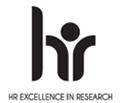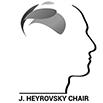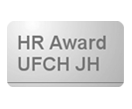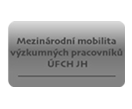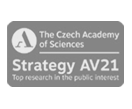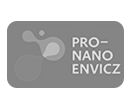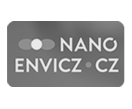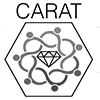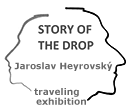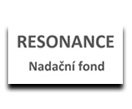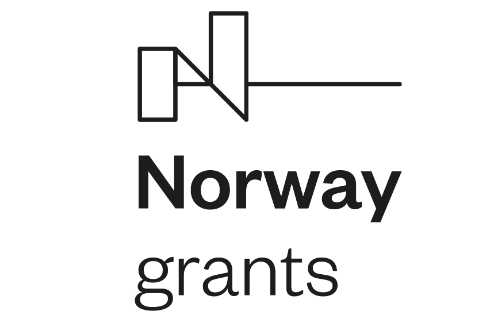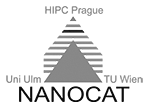Heyrovský Discussions
Heyrovský Discussions are organized annually in springtime by the J.Heyrovský Institute of Physical Chemistry of the Academy of Sciences of the Czech Republic in one of the conference centers of the Academy. Originally the Discussions were held in the castle Liblice, later in Bechyně and recently they have taken place in Třešť.
The purpose of the Discussions is to bring together, on invitation by the Organizing Committee, a limited group of specialists in a particular field of electrochemistry, and to enable them to exchange ideas and views on their research problems in an informal and friendly atmosphere. This was the way how polarography was developing under the guidance of Professor Heyrovský between the I. and II. world wars at Charles University in Prague; hence the name of this scientific gathering.
The tradition was started in 1967 and maintained for 24 years by Professor A.A.Vlček, then director of the J.Heyrovský Institute. Every year a different subject has been selected for the Discussion. The following topics were discussed so far:
1967 Adsorption at Electrodes and its Influence upon Electrode Processes
1968 Adsorption and Processes on Catalytic Electrodes
1969 Mechanism of Redox Reaction Proper
1970 Intermediates and Products of Electrode Reactions
1971 Products and Intermediates of Redox Reactions
1972 New Principles in Electroanalytical Chemistry
1973 Deposition and Oxidation of Metals
1974 Electrochemistry in Non-Aqueous Solvents
1975 Electrochemical Phenomena in Biological Systems
1976 Redox Reactions of Coordination Compounds
1977 New Horizons in Polarography
1978 Electrochemical Energy Conversion
1979 Electrochemistry in Environmental Protection
1980 Electrochemical Phenomena on Membranes and Biomembranes
1981 Fundamentals of Preparative Organic Electrolysis
1982 New Principles in Electroanalysis
1983 Photochemical Stimulation of Redox Reactions
1984 Electrochemical Processes in Two-Phase Liquid, Microemulsion and Micellar Systems
1985 Recent Aspects of Electrocatalysis
1986 New Aspects of Electrochemical Materials Fundamentals
1987 Ecoelectrochemistry
1988 Electrochemistry of Separation and Synthetic Processes at Liquid/Liquid Interfaces
1989 Catalytic Homogeneous Processes Combined with Electrochemical Charge or Group Transfer
1990 Electrochemistry on Organized Molecular and Polymolecular Structures
1992 Electroanalysis and the Environment
1993 Progress in Organic and Organometallic Electrochemistry
1994 Electrochemical Processes on Liquid Membranes
1995 Electrochemistry of Biologically Active Compounds and Their Models
1996 Advanced Techniques in Electrochemistry
1997 Electrochemistry at Liquid/Liquid Interface
1998 Electrochemistry for Analytical Separations
1999 Organic Electrochemistry
2000 Nanostructures on Electrodes
2001 Chemistry on Polarised Liquid-Liquid Interfaces
2002 Electrochemical Impedance Analysis
2003 Electrochemistry of Biological Systems and Their Models
2004 Emerging Topics, Applications and Methodologies in Electrochemistry on Liquid-Liquid Interfaces
2005 Electrocatalysis in Nanoscale
2006 Electrochemical Impedance Analysis
2007 Electrochemistry of molecules with multiple redox centers
2008 Electrochemical Impedance Spectroscopy
2009 Liquid-liquid Electrochemistry - from Fundamentals to Applications
2010 Electrochemistry of Organic Molecules and Coordination Compounds
2011 Nanostructures on Electrodes
2012 Electrochemistry of Biopolymers and Bioactive Compounds
2013 Molecular Electrochemistry in Organometallic Science
2014 Electrochemistry of Organic and Bioactive Compounds
2015 Progress in electrochemistry at liquid-liquid interfaces and liquid membranes
2016 Electrochemical Interfaces at the Nanoscale
2017 Molecular Electrochemistry in Organic and Organometallic Research
2018 2D and 1D Materials
2019 Electrochemical Investigation of Organic Compounds and Biopolymers
2023 Molecular Photo-spectroelectrochemistry, Mechanisms and Electrosynthesis
As a rule, the various problems connected with the main topic of the Discussion are presented in introductory lectures to the 5-6 discussion sessions. The speakers are expected not to provide an exhaustive review, but rather to give their personal opinion about the problem and to outline other, especially conflicting, standpoints on the matter. After a short break the lecture is followed by a discussion which includes concise, both ad hoc and prepared, contributions to the risen points. As there are no records taken of the contributions, the participants are encouraged not to be hindered by second thoughts in expressing openly their views in the discussion. The alternative way of presenting discussion contributions in form of posters is also accepted; the posters may be exhibited during the whole period of the conference.
Each session is presided by a chairperson whose duty is to direct and control the discussion with respect to topic and to time, and to see that all the important points touched in the lecture have been dealt with. The social part of the program gives ample opportunity for personal contacts between the participants and for pursuing discussions in closer circles.
The language of the Discussion has been traditionally English and no simultaneous translation into other languages has been provided. Unless expressedly demanded by the participants, no special publication is prepared from the Discussion; as a rule only a short report appears in an electrochemical journal.
It is hoped that continuing the tradition of the Heyrovský Discussions will foster further progress of electrochemical science in the spirit of creative international cooperation.



